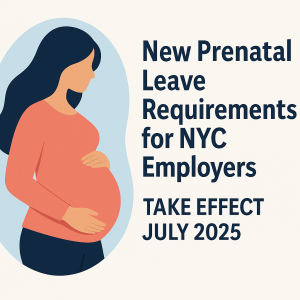In early June 2023, New York State lawmakers approved the Freelance Isn’t Free Act, which would provide protections for freelance workers. New York City enacted a similar law that went into effect in May 2017.
The new statewide law would require a hiring party to (i) enter into a written contact with a freelance worker for a project worth at least $800 (for one service or the aggregate of multiple services within 120 days); and (ii) provide a copy of the contract to the freelancer and retain a copy for at least six years. The bill lists the minimum terms that must be part of the written contract and instructs the DOL to issue model contracts in multiple languages.
Under the bill, (i) a hiring party is defined as any person who retains a freelance worker to provide any service, other than the federal government, the State of New York, a municipality, and any foreign government; and (ii) a freelance worker is defined as an independent contractor other than a sales representative, lawyer in good standing, licensed medical professional, or construction contractor.
The law would prohibit hiring parties from retaliating against freelancers for exercising or attempting to exercise their rights under the new law. It also would allow freelancers to file claims for violation of the law with the NYS Department of Labor (DOL) or go straight to court.
Interestingly, the New York State legislature passed a similar bill in 2022 that was vetoed by Governor Hochul. However, the current bill passed the State Senate and Assembly by wide margins, indicating that this time the Legislature might have sufficient votes to override a veto.
If Governor Hochul does sign the bill, it will go into effect 180 days after signature.
If you have questions or concerns about this bill or the NYC Freelance Isn’t Free Act, or questions or concerns about your rights as hiring party, employee, or independent contractor, please contact Chaim Book at CBook@booklawllp.com, Sheryl Galler at SGaller@booklawllp.com, or Nadav Zamir at NZamir@booklawllp.com.
Disclaimer: The information provided in this blog post is for general knowledge purposes only and should not be considered legal advice. For specific guidance tailored to your situation, it is advisable to consult with a qualified employment law professional.

